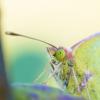"Siberian Ginseng
What is it?
Siberian ginseng (Eleutherococcus senticosus) is in the same family as American and Chinese (or Korean) ginseng but is not a Panax species. This means that although they share a similar name, use and a distant relation, Siberian ginseng is not "true ginseng" and has distinctly different characteristics from the others.
Also called, Eleuthero or Spiny Ginseng, Siberian ginseng is native to eastern Russia, China, Korea, and Japan. It’s a deciduous shrub that can grow to a height of 10ft. It has 3 to 7 toothed leaflets on each stem. The medicinal part is the root, which is 1.5 to 4 cm long, brown to brownish gray, with lengthwise wrinkles. It is twisted and smells aromatic but tastes bitter and astringent. The root is commonly unearthed in autumn, dried whole, and then chopped up for use in supplements.
Soviet scientists discovered the eleutherococcus species while they were looking for a cheaper form of ginseng. Ginseng had been used for centuries to help boost the immune system, as well as to enhance sexual and athletic performance. The one drawback was that ginseng was very expensive. In the 1950s, the Soviet Union introduced the world to what US doctors dubbed, "Siberian Ginseng".
Tested by the Russians in several trials, this herb was soon hailed as an "adaptogenic" (stress-protective) marvel. Some American doctors greeted this proclamation with skepticism - calling the trials into question since there were seldom the types of controls, such as placebos, that western medicine had come to rely upon. Still, Soviet athletes and military personnel used it to increase physical performance and endurance. This practice was also called into question by western doctors.
Even though this herb does not have the extensive historical use, it has become another mainstay in natural healing. Chinese doctors, in particular, have taken great interest. They often prescribe it for many different chronic illnesses. Even American scientists are starting to take a closer look. Europeans have already deemed the herb to be an effective tonic. In 1991 the German Commission E (the European authority on the use of plants in healing) made it official by declaring that it was effective in boosting the immune system.
Some scientists now believe that Siberian ginseng was in use by the Chinese for centuries before its official "discovery". Although this theory is gaining in popularity, there has been little evidence one way or the other. One thing is for sure, the Chinese have developed a knack for using this plant that the west has yet to catch onto.
Proposed Uses
Depression: Depression is, of course, affected by every aspect of our lives. Those suffering from mild to moderate depression can often be helped just by the increase in energy and the resilience towards stress. However, Siberian ginseng also seems to have a specific action against the condition itself.
Stress and associated symptoms: Similar to the other forms of ginseng, Siberian ginseng is used to treat a plethora of conditions. For instance, since Siberian ginseng contains substances that exert beneficial effects on the adrenals (small glands on top of the kidneys that secrete stress-fighting hormones) it effectively combats the symptoms of stress. These include insomnia, moodiness, and fatigue.
Chronic illnesses (such as cancer): The herb is often used as part of a recovery program from chronic illnesses such as cancer. The supplement increases energy stores and helps to relieve the stress of chemotherapy (or other invasive treatments). For these same reasons it is often given to athletes during training. Siberian ginseng is also very effective in the treatment of prolonged exhaustion and debility, resulting from overwork and long-term stress.
Mental functions: Mental acuity can also be improved by Siberian ginseng. Many people swear by the use of it during tests. Often times, stress is the cause for faulty memory, lack of focus, and other common complaints. It’s a cycle in which the symptoms produce more stress, which produces more symptoms. Siberian ginseng seems to be able to defuse this by relieving tension and allowing the mind to focus.
Anorexia Nervosa: Increasing energy gradually is important to those struggling with anorexia nervosa. Although, the other forms of ginseng are too strong for this situation, Siberian ginseng seems to work gently and effectively to improve the overall condition of patients. This makes recovery more likely.
Resisting Illnesses: The herb also stimulates immune resistance and is often used as a preventative during flu and cold season. As a general tonic, Siberian ginseng helps to prevent infection and maintain well being. Because of this immune boosting effect, Siberian ginseng is frequently included in nutritional support programs for people with chronic fatigue syndrome or fibromyalgia.
Alzheimer’s disease: It may benefit people who are in the early stages of Alzheimer’s disease by increasing mental alertness. Research is still needed in this area but patients given Siberian ginseng seem to respond favorably.
PMS, Menopause, & Fertility: By slightly altering hormone levels and toning the uterus, Siberian ginseng may be effective in treating menstrual irregularities and symptoms of menopause. It also appears to be helpful in preventing female infertility. When alternated with Panax ginseng, it may even be an effective treatment in some cases of impotence.
Other conditions: Other conditions for which Siberian ginseng is occasionally recommended are artherosclerosis, impaired kidney function, kidney pain, rheumatoid arthritis, chronic fatigue syndrome, blood pressure disorders, symptoms of coronary atherosclerosis, symptoms of radiotherapy- and chemotherapy-induced leukopenia (decrease in white blood cells), and attention-deficit/hyperactivity disorder.
How it works
Very little has been published on how Siberian ginseng works to treat the many different conditions that it has shown to benefit. Scientists do have an idea of how it works on depression, though. Depression is believed to be caused by a problem in the way the brain sends and receives messages. These messages are sent using neurotransmitters which return at the end of the sending to their starting point and are reabsorbed. There they are broken up by a substance commonly known as MAO. Many depression treatments focus on inhibiting the MAOs or on blocking the re-uptake of certain neurotransmitters. This often causes unpleasant side effects. Siberian ginseng improves the balance of important neurotransmitters (including serotonin, dopamine, norepinephrine, and epinephrine) in the brain. They do no know exactly how it works on these neurotransmitters but there is a clear balancing effect that seems to help improve this condition in many patients.
Pharmacology
The following are compounds found in Siberian ginseng:
Eleutherosides (0.6-0.9%)
Phenylpropanoids
Lignans
Coumarins
Sugars
Polysaccharides
Triterpenoid saponins
Glycans
Side Effects
May cause nervousness and restlessness in some individuals. In rare cases, Siberian ginseng may cause mild diarrhea. Siberian ginseng is not recommended for individuals with very high blood pressure. It may cause insomnia in some people if taken too close to bedtime.
Stop taking Siberian if you develop the following symptoms:
Breathing problems or tightness in your throat or chest
Chest pain
Skin hives, rash, or itchy or swollen skin
Drug Interactions
Siberian ginseng may interfere with heart medications. In one 74-year-old man, taking the herb along with digoxin caused the drug to accumulate in his body, reaching dangerous levels.
There have been other suspected interactions with the following medications:
Stimulants (even mild ones containing caffeine)
Barbiturates (medicine for sleep, seizures, or nervous conditions; examples: Seconal secobarbital, Luminal, phenobarbital)
Diabetic blood sugar medicine (hypoglycemics, examples: insulin, Glucophage, metformin, glipizide, glyburide)
Antipsychotic medicine (for certain mental disorders like schizophrenia, examples: Haldol, haloperidol, Clozaril clozapine, Zyprexa, olanzapine, Risperdal, risperidone)
Heart medicine (Lanoxin®, digoxin)
Cautions
Avoid high-potency formulas of Siberian ginseng (more than 900mg daily) as this can cause insomnia, irritability, nervousness, and anxiety.
Studies have not shown Siberian ginseng to be safe during pregnancy. It’s recommended that you avoid taking Siberian ginseng while pregnant until more research can be done.
Clinical Studies
Currently, the former Soviet Union, is the only country to seriously study the uses and effects of Siberian ginseng. These studies involved several thousands of subjects and were conducted in trials during the 1960s. Many scientists question the findings of the Soviet trials because of the lack of controls, such as placebo.
Stress: The most noted study was conducted by Russian health researcher, I.I. Brekhman. Brekham examined the effects of Siberian ginseng on depression and mood in thousands of men and women and concluded that it was equal to that of traditional ginseng.
Stamina & endurance: Some of the most publicized studies from Russia involved 2,100 healthy men and women, ages 19 to 72. In these patients researchers found that ginseng improved the following: physical labor performance; proofreading accuracy; radio telegraphists’ speed and precision in noisy surroundings; the ability to adapt to hot temperatures, as well as to high-altitude, low-oxygen environment; and the ability to withstand motion sickness.
Immunity & Respiratory Tract Infections: In one large study, more than 13,000 auto workers who took the herb reported suffering 40% fewer respiratory tract infections during that period than in previous winters.
Stress and Recovery: In studies involving over 4,300 subjects, Siberian ginseng was administered orally to determine its effects on disease, or to assess its ability to help the body tolerate stress. Subjects who had atherosclerosis (narrowing and hardening of arteries), pyelonephritis (kidney/pelvis inflammation), diabetes, hypertension (high blood pressure), hypotension (low blood pressure), craniocerebral trauma (brain damage), neurosis, rheumatic heart disease, chronic bronchitis, and pulmonary tuberculosis noted overall improvements in their condition. Healthy subjects in these studies were exposed to extremes in temperature, sound, working conditions, exercise, and deep-sea diving decompression. They noted enhanced physical labor and stamina, mental concentration and acuity. They were better able to tolerate the extreme conditions.
Ccer:r Some studies suggest that Siberian ginseng may help protect against some types of cancer or boost the effects of conventional chemotherapy drugs. More information is needed to verify these potential benefits.
Immunity: Immune stimulant effects, noted through increases in white blood cell count (particularly T-lymphocytes) were reported in a double-blind, placebo-controlled study of healthy subjects.
Athletic Performance: In 1996, 20 highly trained American distance runners were given Siberian ginseng. The results show that they did not perform any better in treadmill tests than their peers on placebos. "
----- Has anyone found this supplement useful? It seemed to give me nervousness/uneasiness , somewhat like a decent dose of caffeine.












































